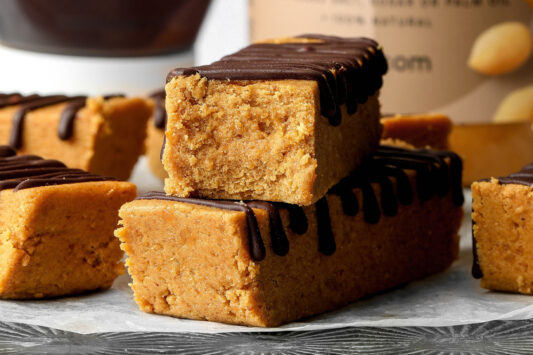A lot goes into being successful in your chosen sport. Training, of course. Rest and recovery. Nutrition and supplementation. Let’s talk about the less tangible: the importance of goal setting.
In all sports, you’ll find some people who set no goals at all, some who choose easy targets, and some who set very specific goals.
What is a true goal?
Good goal setting is incredibly specific, and progress towards (or away from) it can be measured and managed. Goals in sport are usually tied to a date, a place, an event, a series of numbers. You know you’ve set a goal when it nags at you, day and night.
- Rather than saying you want to lose weight, specify how much you want to lose, and by what date.
- Rather than saying you want to run a marathon, pick a race, memorise the date, understand the course and conditions.
- Rather than saying you want to start going to the gym, set a target training goal for a certain big, compound exercise.
Know your “why”
An important part of successful goal setting is knowing the reason behind the challenge. What is your “why”? This might be something that means absolutely nothing to anybody else. That’s OK. But it needs to mean everything to you. The tougher the goal, the bigger the challenge and the more frightening the road ahead, the more meaningful your “why” needs to be. Your “why” will be the thing you remind yourself of when you want to give up, when you want to break the diet, when you want to sit in the changing rooms and cry rather than go and do another leg session. Your “why” has to be stronger than all your fears, excuses and self-doubt.
Do you set goals?
Ask any champion or elite sportsperson and the answer will be “yes”. To people at the top of their game, setting goals is a crucial part of achieving success. How can you get where you want to go if you don’t know where you’re going?
If you don’t already set goals, we encourage you to start. It’s actually a lot of fun! Whilst plenty of people make their goals highly public and visible (which is useful for accountability but may not be your style), you can keep your goals private.
Set aside at least 30 minutes to let your imagination go and indulge in some goal setting techniques which will get your journey off to a solid start.
What goal setting techniques do you use?
Goal setting can be as private or public as you want it to be. There are pros and cons to both approaches and you’ll have to decide what suits your personality best. Are you externally or internally motivated? Is pressure (even if it’s only applied by yourself!) a good thing or is it likely to make you crumble? Do you prefer to be pulled forward towards your goal by a “carrot” or pushed by a “stick”?
Vision boards: Pinterest is all well and good for this, but you need a physical board for this one. Use a big bit of cardboard, cork board or the side of your fridge. Then let your imagination do its thing. Add images, photos, quotes, song lyrics, motivational sayings, old photos, pictures of athletes you admire, perhaps photos from last year’s event (if you’re training for a race or show) or the poster or promo material. This is law of attraction at its finest.
Countdown timers: there are plenty of apps you can have on your phone, tablet or desktop which will tick, tick, tick away as your event’s date looms near. You could even have one as your screensaver. Or keep it old-school and use a calendar, with weeks and days counting down to the event. Cross them off as time goes by and make sure the calendar is somewhere you’ll see it several times a day (the kitchen is a good idea!)
Private journalling: online or in a traditional journal, private journalling is a powerful way to stay motivated, keep on track and let your true feelings out in safety. You can look back at months, years and decades past to see how you were feeling, what you were struggling with and what your successes were. It’ll become an amazing resource which sums up what makes you successful.
Blogs, forum journals, social media: the 2.0 version of journalling, but (very) public. If external accountability and motivation is your thing, you might benefit from the encouragement and accountability you’ll get from keeping a blog, forum thread or posting social media updates. Not for sensitive snowflakes, this option is powerful but the pressure can work against you.
Training partners: a good training partner is worth his or her weight in gold (or perhaps double their weight if they’re a Lightweight). Your training partner will be part coach, part confidante and chief cheerleader throughout. Find someone you can trust, not just with your goals, but with your schedule. They’ll keep you motivated, encourage you, cajole you and will somehow know exactly what to say (and when to say nothing).
How do you set goals? We’d love to know what works for you.
About the Author:
Nicola Joyce has been writing for (and about) sport, fitness, nutrition and healthy living since 2004. She’s also a keen sportswoman: her background is in endurance sport but she now competes as a natural bodybuilder, most recently winning a world title with the INBF. When she’s not writing content, she can be found blogging. Follow her here www.nicolajoyce.co.uk and on Facebook & Twitter (@thefitwriter) too.
















